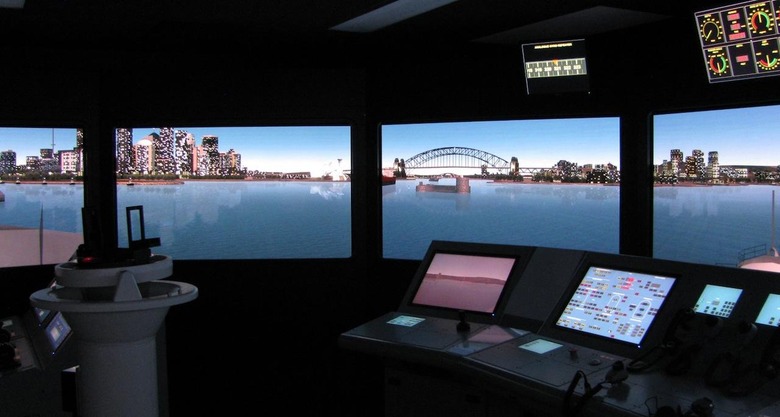Rolls-Royce Predicts Drone Ships In A Decade
Rolls-Royce may not have a fleet of autonomous luxury cars on the road yet, but the ship-building engineering group that bears the same name is predicting self-piloting drone ships within the next ten years. Over-cautious regulations and nautical miles of red tape are the key factors holding adoption back, Rolls-Royce marine innovation engineering chief Oskar Levander told the FT [subscription required], concluding that the remaining technological challenges around creating autonomous cargo ships are dwarfed by the problem of getting rule-makers around the globe to agree on new standards for such vessels. However, Levander also predicts that autonomous ships could begin operations sooner, albeit on a smaller scale.
The Rolls-Royce engineer warns that it will likely take more than a decade for regulators around the world to agree on a new set of rules governing drone ships across all oceans. However, if forward-thinking countries choose to move faster and change the rules around their own territories – such as US coastal waters – that could see local routes navigated by self-piloting craft much sooner.
Without that regulatory evolution, the company says, it has little motivation to actively work on the autonomous technology, however.
Rolls-Royce's reticence doesn't mean other projects aren't exploring the field. The European Commission is co-funding MUNIN (Maritime Unmanned Navigation through Intelligence in Networks), a scheme to develop and verify concept cargo ships that could be remotely navigated by land-based pilots, as well as look at the legal and regulatory issues around them.

The benefits, the MUNIN project team has calculated, could be significant. Reducing cargo ship speed by 30-percent could cut overall fuel consumption in half, despite the longer journey; the downside on a traditional ship would be an extended period onboard for the human crew, something a remotely-controlled vessel would avoid. A physical presence onboard would only be required for approach and berthing, while an emergency team could be flown out to handle issues the ships' autonomous problem-solving routines could not handle.
Rolls-Royce says that with popular attention being paid to self-driving cars, like Google's fleet, and drones, such as Amazon's PrimeAir scheme, the time is right to discuss autonomous ocean-going vehicles too.
That's not to say the regulatory environment facing drones in either land or air is any more settled, however. The FAA is still uncertain on how legal quadcopters and other drones are, something which could well put a damper on Amazon CEO Jeff Bezos' plans to use them for last-minute deliveries, for instance.
On the road, meanwhile, while analysts predict billions in cost reductions and a huge increase in safety, rules around fully-autonomous cars are still yet to permit computers alone to take the wheel. Google's cars, for instance, are required to carry not only a safety driver to be behind the wheel, but to have a second person onboard just in case.
